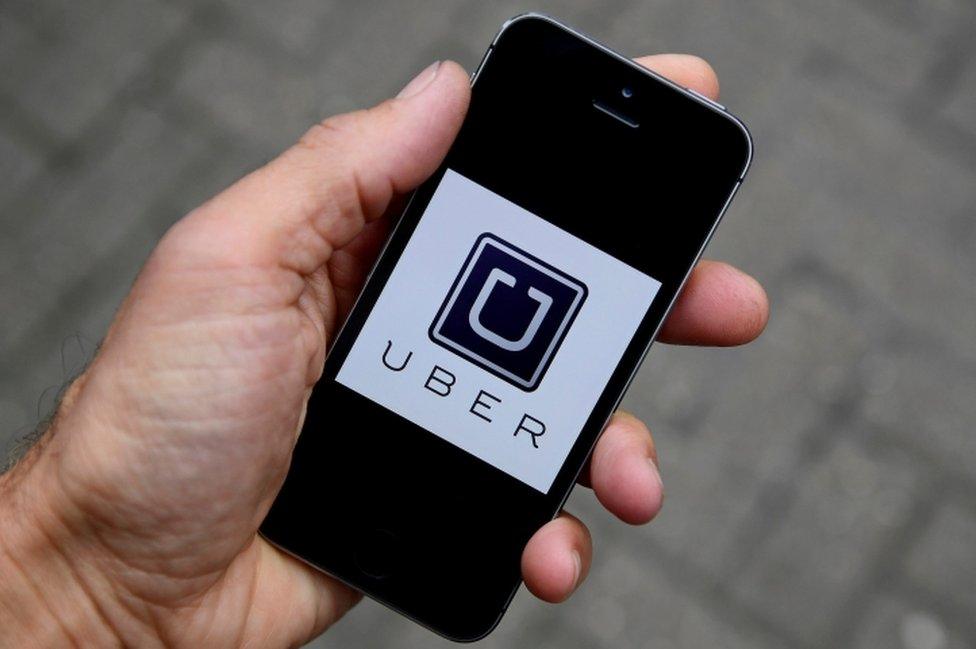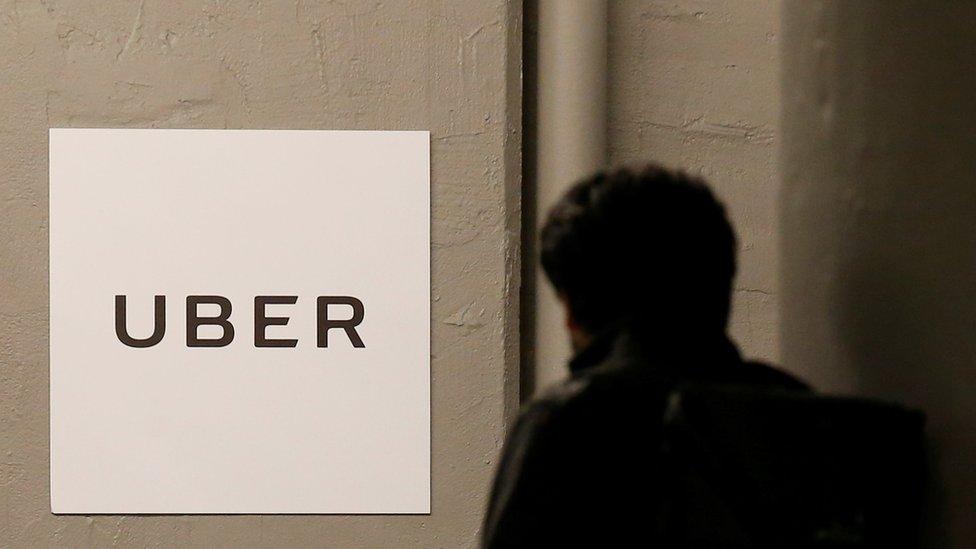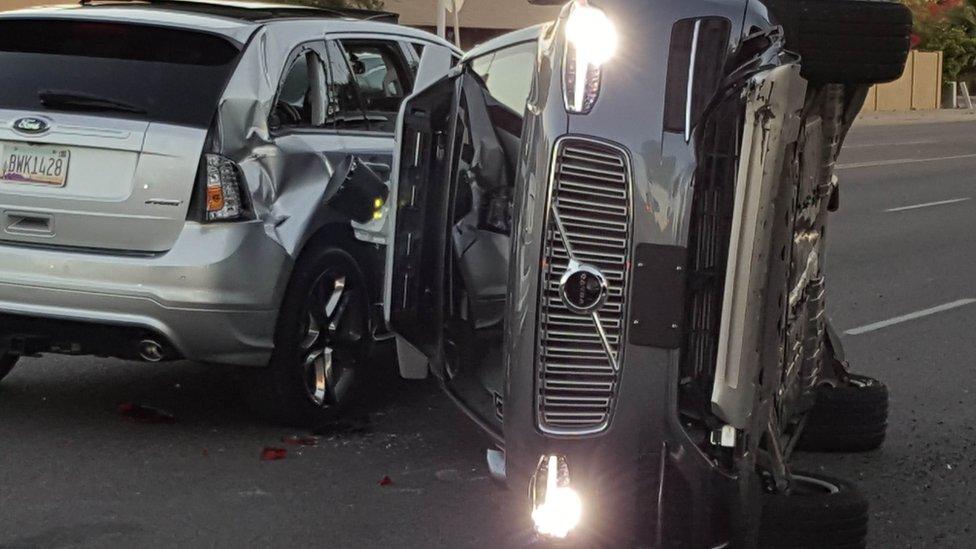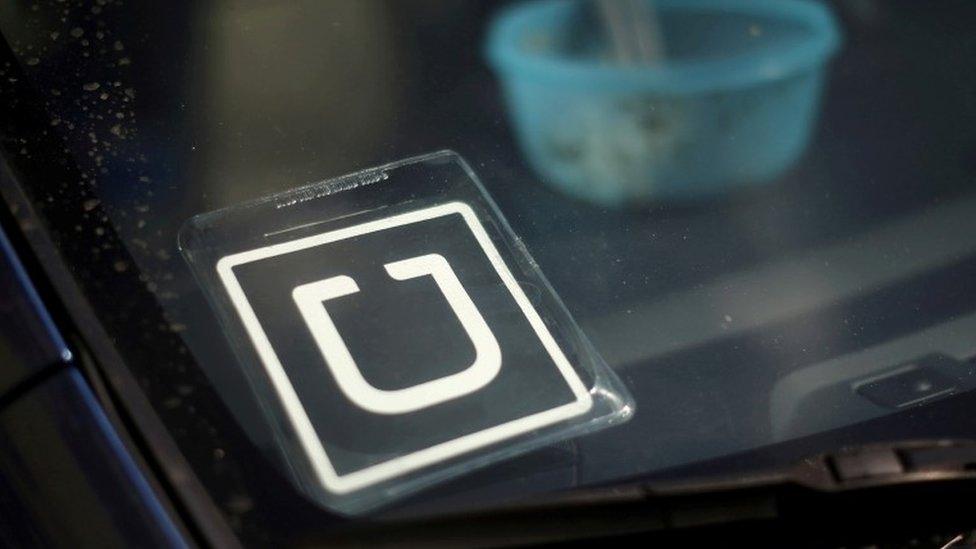Innisfil partners with Uber to provide public transport
- Published

Innisfil Ontario has picked Uber over the bus
A small Canadian town has launched a first-of-its-kind ride sharing-transit partnership with Uber.
Innisfil will subsidise a portion of the fare for all trips with the taxi firm taken by residents within the town's boundaries.
Officials say the deal offers more flexibility for residents and is cheaper than adding a town bus service.
Uber Canada public policy manager Chris Schafer says the project has sparked global interest.
The cost of a ride to any four of the community's transport or recreation hubs will cost residents between C$3 (US$2.20/£1.70) and C$5 (US$3.60/£2.80).
They will also get a C$5 discount on any custom trip within Innisfil, a lake-side Ontario town of about 36,000 people 100 km (62 miles) north of Toronto.
Tim Cane, the town's land use planning manager, said Innisfil had been struggling to figure out an affordable transport model that would serve an area over 290 square km (110 square miles).
A bus would have cost the town $270,000 annually for one route and $610,000 for two, which they thought would be too expensive, Mr Cane added.
Mr Cane said the town council wrestled for years with the question: "How do we afford a transit model that on a good day would serve maybe 20% of the population?"
Senior Innisfil official Jason Reynar issued his staff the challenge, and the idea for a "demand-responsive transit service" was born.
But one cab company owner has expressed frustration.
Global Taxi owner Manjot Saini told the CP24 news station, external that Uber puts local taxis at a disadvantage. He worries he might lose drivers to the competition.
"Uber is destroying the industry," he said.
Mr Cane said the town consulted with the three local companies early in the process and the programme was "never about Uber versus taxis" but about providing a service to residents.
"Let's just try this on," said Mr Cane. "Whatever service we provide is better than a service we don't have."
The community has set aside $100,000 for the programme's initial 6-9 month phase and another $125,000 for the indeterminate second phase.
- Published25 February 2017
- Published3 June 2016

- Published28 March 2017

- Published26 March 2017

- Published21 March 2017
- Published20 March 2017
- Published11 May 2017
